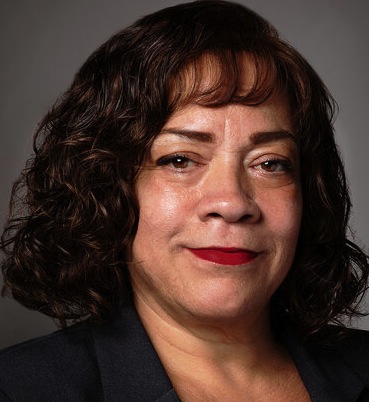State must help Blacks participate in the greening of California

By Taylor Jackson
Guest Columnist
California must act now to confront today’s Black job crisis. The Bureau of Labor Statistics last year reported that 90% of the nation’s unemployed U.S. citizens are Black Americans. And despite being less than 10% of the population of Los Angeles, Black people comprise more than a third of its unhoused residents.
Senate Bill 1340 renews hope in confronting this Black job crisis, as $180 billion in federal dollars are coming to California to fund the state’s green infrastructure projects over the next decade. The bill — authored by state Sen. Lola Smallwood-Cuevas, D-Los Angeles, — would establish local “disadvantaged worker” demographics across California and require state-funded contractors to prioritize hiring these workers, who are primarily from underserved communities of color.
One Black construction worker who has benefited from an equitable hiring program is Patricia Allen. In 2014, Allen was an unemployed single mother living in the Crenshaw area who was hired to work on the Crenshaw/LAX rail line as part of a project labor agreement (PLA) that prioritized the hiring of local disadvantaged individuals.
“It really felt good to see other faces like mine on the project,” said Allen, who now works as a safety supervisor for a construction company after earning her safety training certificate. “Without PLAs and other hiring programs, we’re not going to be able to get a fair chance to sit at the table.”
SB 1340 would also require state-funded contractors to regularly track and report disadvantaged workers hired on their projects to hold them accountable to meeting equitable hiring goals established by the state. The Biden administration has intended for states to utilize these federal grant dollars to boost equitable hiring programs and other community benefits.
To remain competitive in securing future federal funding, California must demonstrate that it is successfully executing equitable hiring programs. Tracking and reporting are the most effective ways to ensure that California is keeping receipts on workers hired on development projects and ensuring that the communities they come from have benefited.
California awarded one of its first contracts from these federal dollars to a Texas-based company. Without SB 1340, Black community members are concerned about the implications: firms like this out-of-state contractor are not currently required to hire local workers from vulnerable communities, including Black men and women.
“With billions of dollars flowing from the federal government to California for green infrastructure projects, now is the time to address the need for equitable hiring and timely remediation,” said Emily Gartenberg, California senior policy coordinator for Jobs to Move America. “California’s workers deserve action. With SB 1340, we can assure that an inclusive workforce will build our new green economy.”
As critical as SB 1340 is in helping to solve the state’s Black job crisis, the bill has fallen on deaf ears in the governor’s office. While Gov. Newsom makes promises to support legislation that aims to make a more equitable California, Black workers need him to act now on those promises.
Although California is facing budget constraints, SB 1340 will be a low-cost bill to implement. It’s a small investment that will pay big dividends given that it will create jobs that would take thousands of people out of poverty, ultimately saving the state money, with tax-paying jobs reinvested back into the state.
Because of California’s long history of institutionalized racist policies, Black communities were excluded from building the state’s infrastructure during the 20th century. SB 1340 would give Black workers an opportunity to play an important role as California transitions into a new green economy. But without this bill, Black workers will again be left out of the state’s latest reconstruction era.
“SB 1340 is essential right now because communities of color have historically been deprived of the natural resources and investments needed to build climate change in ways that improve the conditions of all workers,” said Dawn Modkins, director of the Southern California Black Worker Hub. “This bill is not just about building roads and bridges. It’s about building communities where all people can have environmental and economic justice.”
To voice your support of SB 1340, please call or email your state legislator’s office or call the Office of the Governor at (916) 445-2841.
Taylor Jackson is the regional organizer at the Southern California Black Worker Hub. This column was provided by California Black Media.
LIFTOUT
The Biden administration has intended for states to utilize these federal grant dollars to boost equitable hiring programs.





